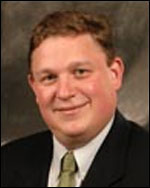A Step-by-Step Guide to Creating Cocurricular Maps to Integrate Learning Inside and Outside of the Classroom
Duration: 1 hour
Facilitator: Dr. Adam Peck
Price: $50.00
Overview:
Learning does not take place in discrete and isolated episodes. It takes place across time, interacts with other learning and is applied in various contexts across one’s time in college. That is not, however, how we often treat or measure student learning. We write learning outcomes that suggest that learning and development in our programs are attributable to specific (sometimes even one-time) learning activities – and we try to the extent possible to isolate learning to those encounters. What’s worse, we may focus much more on assessing student learning than we do on creating it in the first place.
The process of co-curricular mapping provides a way of addressing these issues. According to Seemiller (2016), mapping, “…involves comparing learning outcomes and objectives…to see where there is crossover and gaps” (p. 54). By engaging in a mapping project, programs can plan for learning along the dimensions they identify, including ensuring increasingly complex learning outcomes as a student participates in the program over time.
It also presents an excellent opportunity to partner with academic programs. Often the ability to partner with academic programs can be hampered by the emergent nature of learning in a co-curricular context. By mapping learning outcomes to specific experiences, experiential educators can better connect these opportunities inside and outside of the classroom. Felton et al. (2016) write, “Institutions should challenge and support all students to synthesize and reflect on their undergraduate experiences…this is most likely to happen on campuses that offer programs that encourage integration and meaning making on the individual student level” (p. 105). co-curricular mapping provides a structure for uniting classroom and co-curricular learning because students become aware of the skills they will develop from co-curricular experiences from early on, and can help them track their own learning over time.
While the process of competency mapping is relatively straightforward, the abstract nature of such a concept can be a barrier to some who have not participated in such a process before. Borrego (2006) makes this point in Learning Reconsidered 2, writing, “Mapping…is not new to most practitioners, but it has typically not been clearly defined and documented (p. 15). This webinar will use a practical approach for co-curricular mapping. Participants will leave the webinar with the ability to practically apply what they learn.
Learning Outcomes:
- Participants will evaluate the strengths and potential of co-curricular mapping as a concept.
- Participants will leave with tangible resources for future reference, including a template for creating “learning outcome/learning activity maps.”
- Participants will understand how to create incrementally complex learning in co-curricular programs.
Presenter Biography:
 Dr. Adam Peck serves as Assistant Vice President and Dean of Student Affairs at Stephen F. Austin State University in Nacogdoches, Texas. He is the co-creator or the Cocurricular Career Connections (C3) Leadership Model. Peck is also President and CEO of APEX Educational Programs, LLC, an educational consulting company that assists universities in engaging students and measuring the impact of that engagement. A former stand-up and improvisational comedian, Peck is a dynamic speaker who infuses his presentations with creativity and humor. He is the author of more than forty scholarly publications and has presented more than 100 national and international webinars. He was the co-author/editor of “Engagement & Employability: Integrating Career Learning Through Cocurricular Experiences in Postsecondary Education” published by NASPA.
Dr. Adam Peck serves as Assistant Vice President and Dean of Student Affairs at Stephen F. Austin State University in Nacogdoches, Texas. He is the co-creator or the Cocurricular Career Connections (C3) Leadership Model. Peck is also President and CEO of APEX Educational Programs, LLC, an educational consulting company that assists universities in engaging students and measuring the impact of that engagement. A former stand-up and improvisational comedian, Peck is a dynamic speaker who infuses his presentations with creativity and humor. He is the author of more than forty scholarly publications and has presented more than 100 national and international webinars. He was the co-author/editor of “Engagement & Employability: Integrating Career Learning Through Cocurricular Experiences in Postsecondary Education” published by NASPA.
Peck earned a Bachelor of Arts degree in Theatre from Lewis University, a Master of Arts in Communication Studies from Southern Illinois University at Edwardsville and a Doctor of Philosophy from The University of Texas at Austin.
